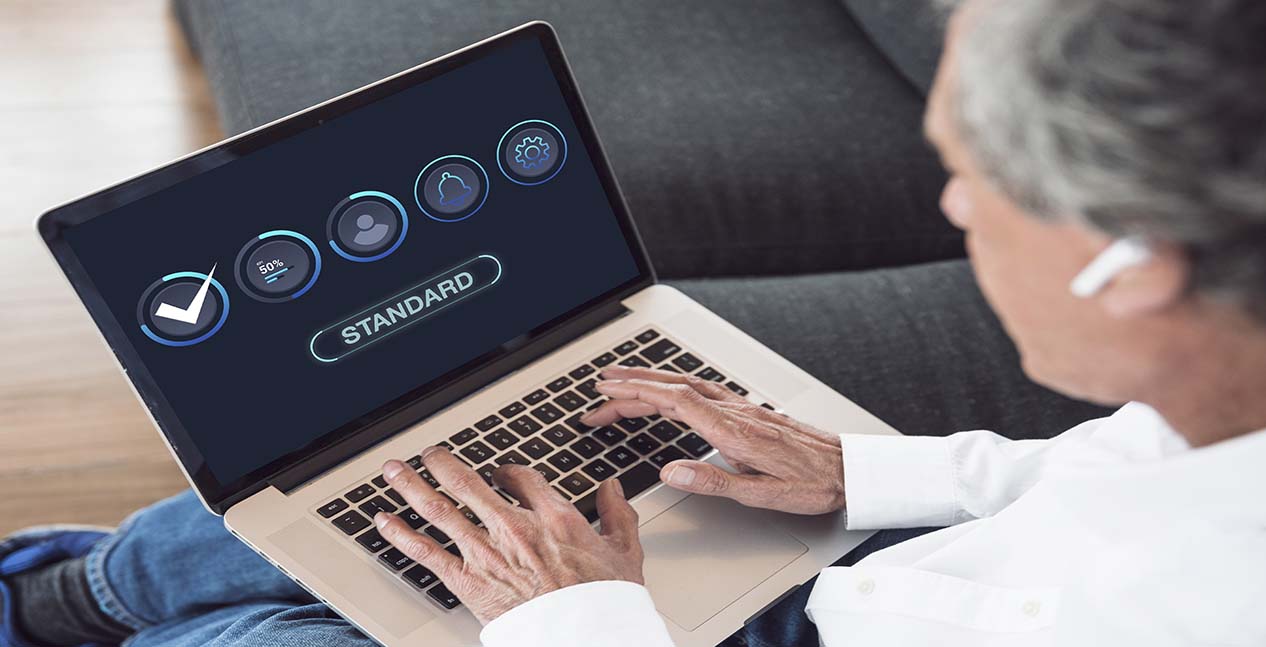
Safeguarding Your Crypto Assets Essential Tips for Optimal Security
The rapid growth and widespread adoption of cryptocurrencies have turned them into valuable assets for investors and businesses alike. However, the increasing value of these digital assets has also attracted the attention of cybercriminals. As a result, it's essential to take proper precautions to protect your crypto investments. In this article, we will discuss the key steps you should take to secure your crypto assets from potential threats.
The first step in protecting your crypto assets is to select a secure and reputable wallet. Crypto wallets come in two primary forms: hardware and software. Hardware wallets are physical devices that store your private keys offline, while software wallets are applications installed on your computer or mobile device. Both types of wallets have their pros and cons, but hardware wallets are generally considered more secure due to their offline storage capabilities. Always choose a wallet from a reputable provider and make sure it supports the cryptocurrencies you plan to hold.
Two-factor authentication (2FA) is an additional layer of security that requires users to provide two different forms of identification before accessing an account. By enabling 2FA on your crypto wallet and exchange accounts, you can significantly reduce the risk of unauthorized access. Most services offer 2FA through an authenticator app or via SMS, with the former being more secure as it is not prone to SIM-swapping attacks.
One of the most crucial steps in securing your crypto assets is creating strong, unique passwords for all of your accounts. Avoid using easily guessable phrases or words and never reuse passwords across multiple platforms. Instead, use a combination of upper and lowercase letters, numbers, and special characters to create complex passwords. To help remember and manage these passwords, consider using a reputable password manager.
Keeping your devices and software up-to-date is essential in protecting your crypto assets from potential threats. Regularly updating your computer, smartphone, wallet software, and any other related applications ensures that you have the latest security patches and enhancements. This helps to safeguard your digital assets from newly discovered vulnerabilities and exploits.
Phishing attacks are one of the most common methods used by cybercriminals to gain access to sensitive information. These attacks typically involve emails or messages that appear to come from legitimate sources, asking you to provide sensitive information or click on malicious links. To protect yourself from phishing attacks, always double-check the sender's email address, avoid clicking on suspicious links, and never disclose your private keys, passwords, or other sensitive information.
Your private keys are the most critical aspect of securing your crypto assets. They grant complete control over your digital assets, making it essential to keep them safe and secure. Never store your private keys online or share them with anyone, and consider using a hardware wallet to keep them offline. Additionally, create backup copies of your private keys and store them in secure, separate locations.
Finally, always practice safe browsing habits when managing your crypto assets online. This includes avoiding unsecured Wi-Fi networks, using a reputable Virtual Private Network (VPN) when accessing sensitive information, and steering clear of suspicious websites or applications. Staying vigilant and cautious online can help to minimize the risks associated with managing your digital assets.
Protecting your crypto assets should be a top priority for any investor or business in the digital asset space. By following these essential tips, you can significantly reduce the risk of falling victim to cyber threats and ensure the security of your valuable investments. Remember, safeguarding your digital assets is an ongoing process that requires constant
Regenerate response

The Importance of Blockchain Technology: A Revolution in Transparency, Security, and Efficiency
Blockchain technology has emerged as one of the most groundbreaking innovations in recent years, capturing the attention of industries, governments, and individuals worldwide. Best known as the underlying technology of cryptocurrencies like Bitcoin, blockchain has the potential to revolutionize various sectors, including finance, supply chain management, healthcare, and many more. In this article, we will explore the importance of blockchain technology and its potential to transform the way we conduct business and share information.
One of the most significant advantages of blockchain technology is its ability to enhance security. As a decentralized and distributed ledger, blockchain relies on multiple nodes to validate and store transactions. This means that, unlike traditional centralized systems, there is no single point of failure. Furthermore, each block in the chain contains a unique cryptographic hash of the previous block, making it virtually tamper-proof. This enhanced security makes blockchain an attractive solution for industries that require secure and immutable data storage, such as finance and healthcare.
Blockchain's transparent nature is another key factor contributing to its growing importance. In a public blockchain, all transactions are visible to every participant, making it easy to track and audit data. This transparency fosters trust between parties and reduces the need for intermediaries, such as banks or other clearinghouses. This feature is particularly valuable in industries like supply chain management, where visibility into the movement of goods can help identify inefficiencies and ensure the authenticity of products.
Blockchain technology can streamline processes and reduce the time it takes to complete transactions. By eliminating intermediaries and automating tasks through smart contracts, blockchain can significantly reduce human error, paperwork, and processing time. This increased efficiency is especially beneficial in industries that rely on complex and time-consuming processes, such as cross-border payments, real estate transactions, and insurance claims.
By simplifying processes and removing the need for intermediaries, blockchain can help businesses reduce operational costs. For example, banks and financial institutions can save on transaction fees by using blockchain to facilitate cross-border payments directly between parties. Similarly, supply chain companies can minimize the costs associated with tracking and verifying the movement of goods by employing blockchain to maintain a transparent and accurate record of their products.
Blockchain's decentralized nature empowers individuals and businesses by reducing their reliance on centralized authorities. Through blockchain technology, users can have more control over their data, assets, and transactions, leading to increased autonomy and reduced risk of censorship or manipulation. This empowerment is evident in the rise of decentralized finance (DeFi) platforms, which allow users to access financial services without relying on traditional banks or intermediaries.
Blockchain technology has the potential to enable new business models and opportunities by providing a secure, transparent, and efficient platform for innovation. For example, blockchain-based tokenization can unlock the value of previously illiquid assets, such as real estate or artwork, by creating digital tokens that represent fractional ownership. Additionally, blockchain can facilitate the creation of decentralized applications (dApps) and digital platforms that disrupt traditional industries and pave the way for new revenue streams.
The importance of blockchain technology cannot be overstated. Its potential to revolutionize various industries by offering enhanced security, transparency, efficiency, and cost reduction has made it an essential tool for businesses, governments, and individuals alike. As blockchain continues to mature and evolve, we can expect to see its impact on our daily lives and the global economy grow. Embracing this revolutionary technology will be crucial for businesses and organizations looking to stay ahead in an increasingly competitive landscape.
Regenerate response

To make sure the cryptocurrency you buy is legitimate, follow these steps
Remember, it's crucial to do thorough research and due diligence before investing in any cryptocurrency. The more informed you are, the better you can protect yourself against potential scams and risks.
- Study the whitepaper: Read the project's whitepaper to understand its purpose, goals, and technical aspects.
-Analyze the development team: Investigate the developers behind the project. A strong, reputable, and experienced team is more likely to create a legitimate cryptocurrency.
-Check the community and social media presence: A strong community and active social media presence can be indicators of a project's legitimacy.
-Trading volume and market capitalization: A high trading volume and market capitalization can indicate that the cryptocurrency is well-accepted and widely used.
-Listing on reputable exchanges: Verify that the cryptocurrency is listed on reputable exchanges with a solid reputation for security and compliance.
-Analyze the price history: Check the historical price data to ensure there are no sudden or inexplicable price fluctuations, which can be a sign of market manipulation.
-Understand the consensus mechanism: Familiarize yourself with the consensus mechanism used by the cryptocurrency, as it can impact security and scalability.
-Review the blockchain: Analyze the underlying blockchain technology and ensure it's secure, transparent, and decentralized.
-Check for code audits and security reviews: Look for independent code audits or security reviews of the project, which can help identify potential vulnerabilities or flaws.
-Know your country's regulations: Understand the legal and regulatory requirements for cryptocurrencies in your jurisdiction to ensure the crypto you're interested in is compliant.
-Verify the project's legal status: Ensure the project has the necessary licenses, registrations, or legal structures to operate within the bounds of the law.
Be cautious of scams and fraud:
-Look for red flags: Be aware of common warning signs, such as guaranteed high returns, anonymous teams, and aggressive marketing tactics.